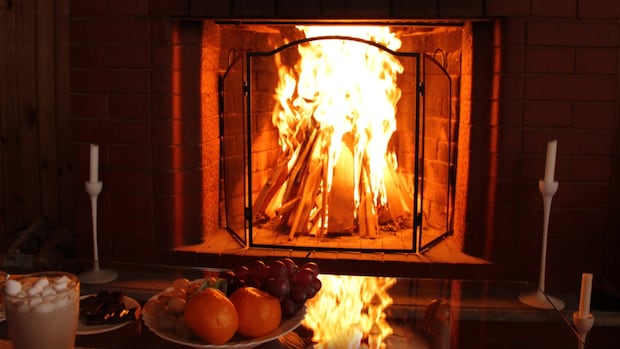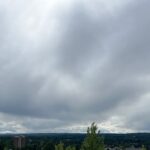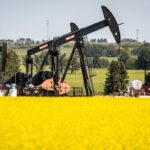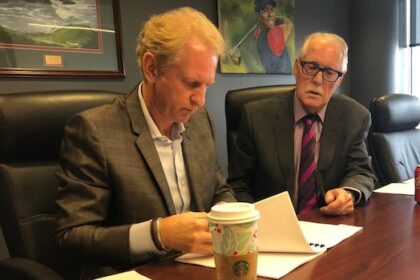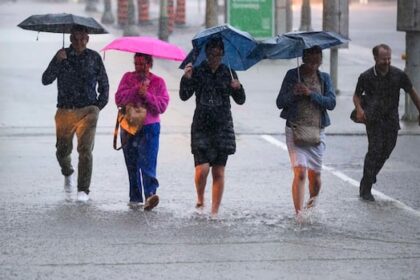British ColumbiaMost Metro Vancouver residents with a wood-burning fireplace or wood stove will have to register their appliances by Sept. 15 as part of regional bylaws — or risk facing a fine.Regional district says wood burning is the biggest culprit when it comes to fine particulate matter emissionsAkshay Kulkarni · CBC News · Posted: Aug 17, 2025 6:22 PM EDT | Last Updated: 3 hours agoMost Metro Vancouver residents will have to register their fireplaces and wood stoves as part of a regional initiative to limit emissions and fine particulate matter. (Olga_Narcissa/Shutterstock)Most Metro Vancouver residents with a wood-burning fireplace or wood stove will have to register their appliances by Sept. 15 as part of regional bylaws — or risk fines.The regional district says the initiative, which will apply to most of the area’s residents living in the urban containment boundary, comes as it tries to control emissions from wood burning.Metro Vancouver says that wood smoke from residential burning is the largest single source of fine particulate matter emissions in the region, which can be a major health concern for seniors, infants and other vulnerable people.The regional district said registration is part of a phased approach to lower emissions from residential wood burning and comes as part of a bylaw adopted in 2020.Other efforts to curb the problem include rebates of up to $1,500 to replace old wood-burning devices with a heat pump, or a cleaner wood-burning or electric model.Metro Vancouver suggests using manufactured fire logs in older fireplaces that likely don’t meet modern emission standards. (CBC )Julie Saxton, who manages Metro Vancouver’s air quality regulation program, said that it’s believed there are tens of thousands of wood-burning devices in the region, potentially up to 100,000.”The whole purpose of the registration is to introduce an emission standard,” she told CBC News.”So we’re not trying to ban people from this activity that that they enjoy and they value,” she added. “We’re trying to introduce lower emissions to reduce the effects on people’s health.”Saxton said that around a quarter of the region’s fine particulate matter emissions come from residential wood-burning.While there are other sources of fine particulate matter pollution — including heavy-duty vehicles, marine vessels and industry — Saxton said there have been successful interventions over the years to reduce those emissions, but not so much for residential wood-burning.”We haven’t been as successful with residential indoor wood burning for a number of years,” she said. “For more than 15 years, in fact, we’ve had voluntary measures in place to try and reduce emissions from residential indoor wood burning.”Up to $500 in finesAs part of its phased approach, Metro Vancouver has already banned residential wood-burning from mid-May to mid-September.In addition, Saxton says there’s a requirement to use best wood-burning practices, which could mean using manufactured fire logs in older fireplaces that likely don’t meet modern emission standards.”These fire logs are more consistent and have high energy content and they typically produce, under normal conditions, cleaner emissions,” she said.”So people can reduce their emissions by using an equipment solution, by using an emissions-certified device, or they can use cleaner fuel.”Fireplace films, such as Fireplace For Your Home on Netflix, have become popular alternatives to a real fireplace. (Courtney Dickson/CBC)Residents can register their fireplaces and wood stoves at metrovancouver.org/fireplace, and the deadline is Sept. 15.The regional district says it will focus on education rather than fining if people don’t register — though repeat and flagrant offenders may be fined up to $500.There are exceptions in place for emergency situations and for low-income households, Saxton said.”We realize that this is a big change and we’ve been pursuing education and trying to advise people as to what the benefits are — not just for them and their family, but also for their neighbours and the wider community,” Saxton said.Industry wants incentivesMike McNeice, the spokesperson for the Hearth, Barbecue and Patio Association of Canada (HPBAC) said his industry lobby group is generally supportive of the phased approach Metro Vancouver is taking to deal with the issue of residential wood-burning. But, he took issue with the deadline to register devices by next month.”We think it puts the administrative onus direct to the end user, to the consumer, which can be challenging,” he said. HPBAC represents manufacturers, retailers, distributors, sales agents, and service companies for wood- and gas-burning appliances.”We sort of understand the motivation of Metro Vancouver and what they’re doing,” he added. “But I think we’d sooner see the resources that are applied to a registry be applied to more incentives for switching out old appliances for new ones.”McNeice argued that, amid an uncertain trade landscape and U.S. tariffs, consumers and manufacturers both wanted more choice instead of more regulation.ABOUT THE AUTHORAkshay Kulkarni is an award-winning journalist who has worked at CBC British Columbia since 2021. Based in Vancouver, he is most interested in data-driven stories. You can email him at akshay.kulkarni@cbc.ca.With files from Cory Correia
Metro Vancouver residents asked to register fireplaces, wood stoves by Sept. 15
